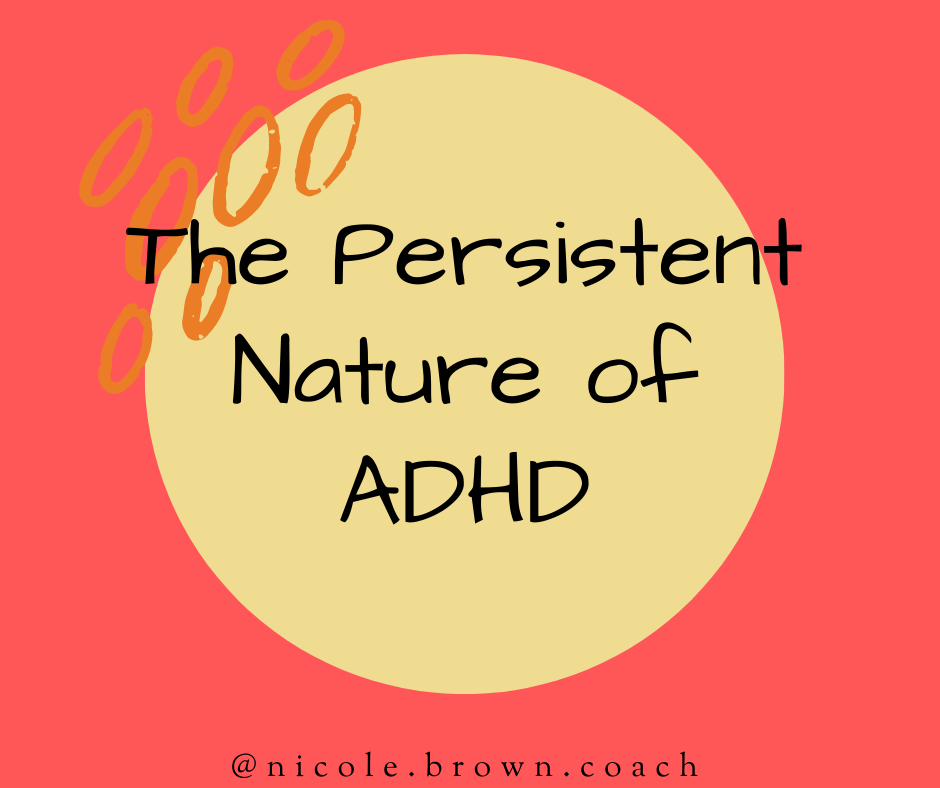The Persistent Nature of ADHD
ADHD does not take a day off. It exists 24x7x365. When you consider that ADHD impairs executive function - the ability for someone to self-regulate what they think, feel, and do at a conscious and unconscious level - you can start to imagine how exhausting this can be.
Working memory is the engine behind executive function. It's like the CPU of a computer. Working memory is non-verbal (think pictures, maps) and verbal (think inner monologue, verbal directions). It proceeds short-term memory and is a holding place for temporary information. Essentially, it helps us draw on information and work on things without losing track of what we're doing.
With working memory impaired, the ADHD brain has to work a lot harder to do the types of actions that a neurotypical brain would do automatically. This has a cumulative effect with short and long-term consequences.
Impact on Willpower
Willpower is a finite resource. We get a certain amount each day and it dwindles as the day goes on. It is consumed by every decision we make and challenge we overcome. When you have ADHD your day is full of many more decisions and challenges and decision fatigue sets in faster.
Even simple things, such as having to replace a tube of toothpaste and not recalling where you put the toothpaste you bought has an impact on your willpower because it consumes decision-making thinking.
With willpower rapidly depleted, it needs to be re-charged through sleep, down time, or escapism. When you have a list of things to do but no brain power to do them, they don't get done.
Impact on Time
People with ADHD have a strained relationship with time, and they consume it no end.
Every task, whether challenging or not, comes with a set of disciplines to be achieved. A neurotypical person will learn something, build on that something, then learn something else, then combine the two, then build them up again.
The difficulty for someone with ADHD is their working memory impacts their ability to not only solve a problem in the first instance, but to also repeat the solution in the future. Unable to hold several steps in their mind at a time they must find ways to externalise what they've captured. In other words, literally writing down each step as they go can help, otherwise they will have to re-learn that step two or three back, once they've learned a new step.
Consequently, time is consumed incalculably because they keep re-learning and re-learning.
And here we land on the third impact.
Impact on Emotions
If you haven't already, you may now be starting to see the origins of frustration within those with ADHD.

